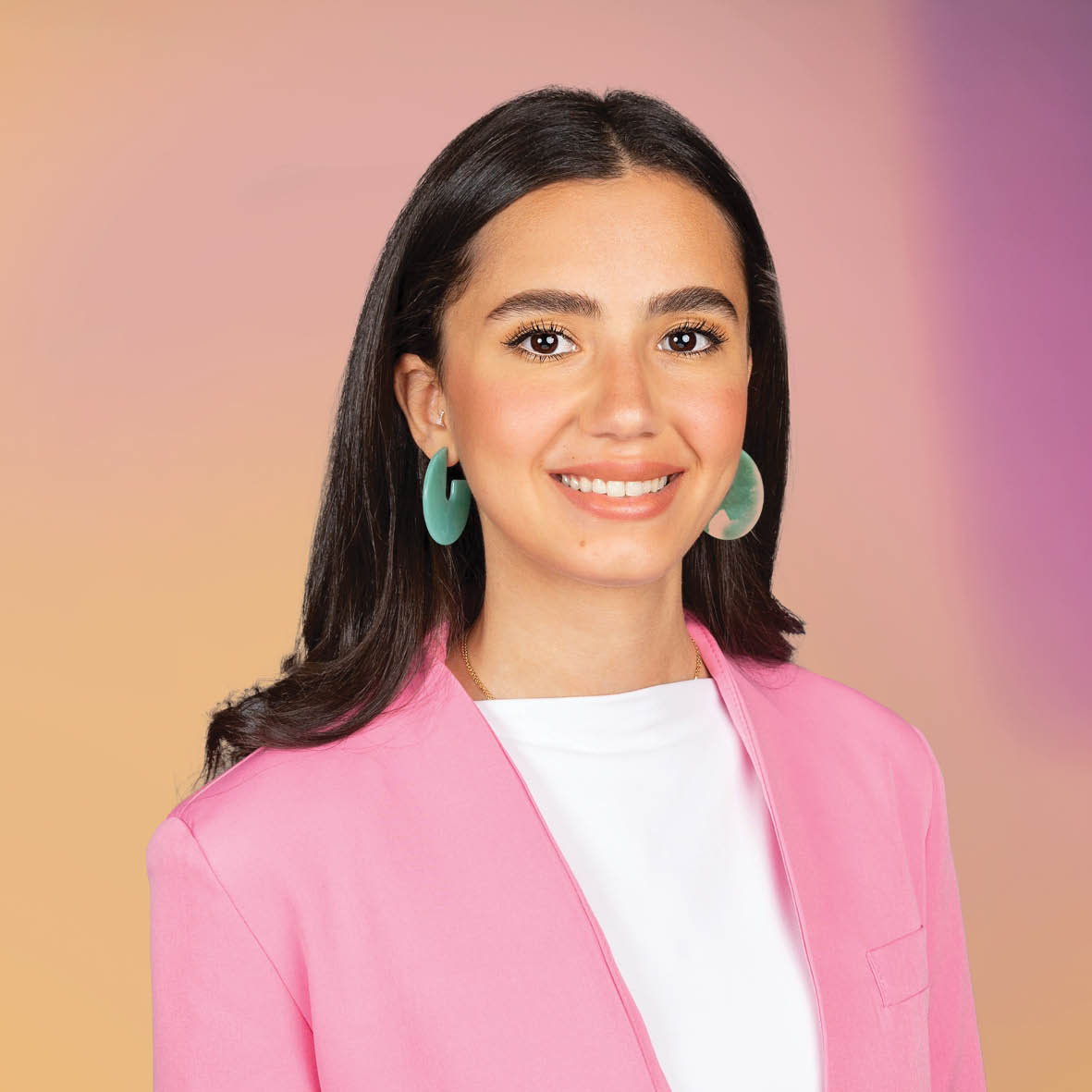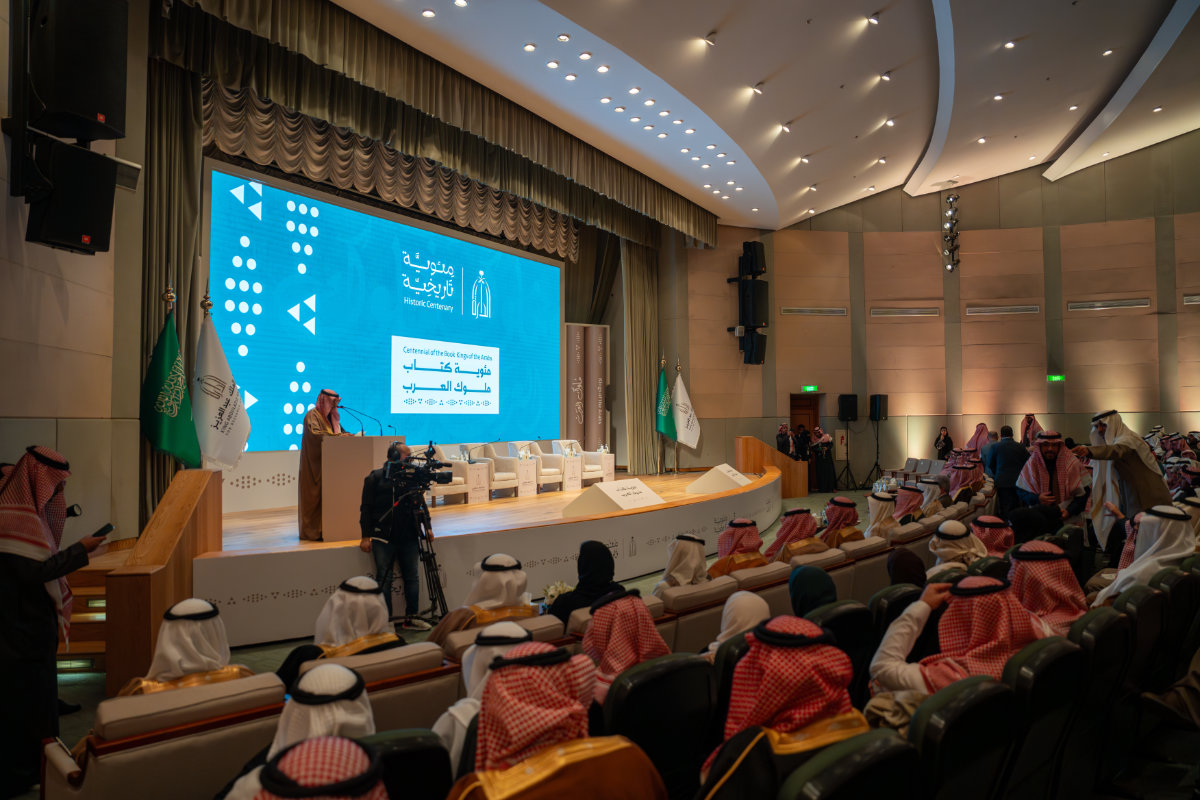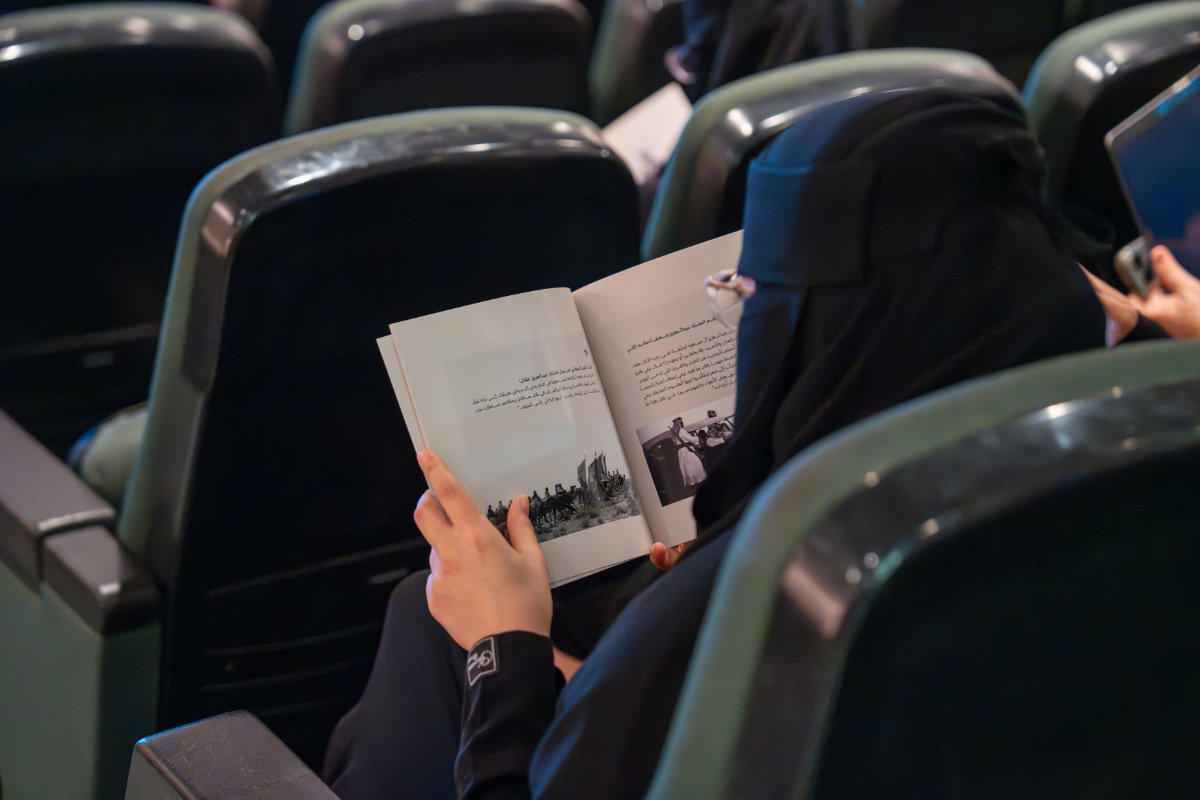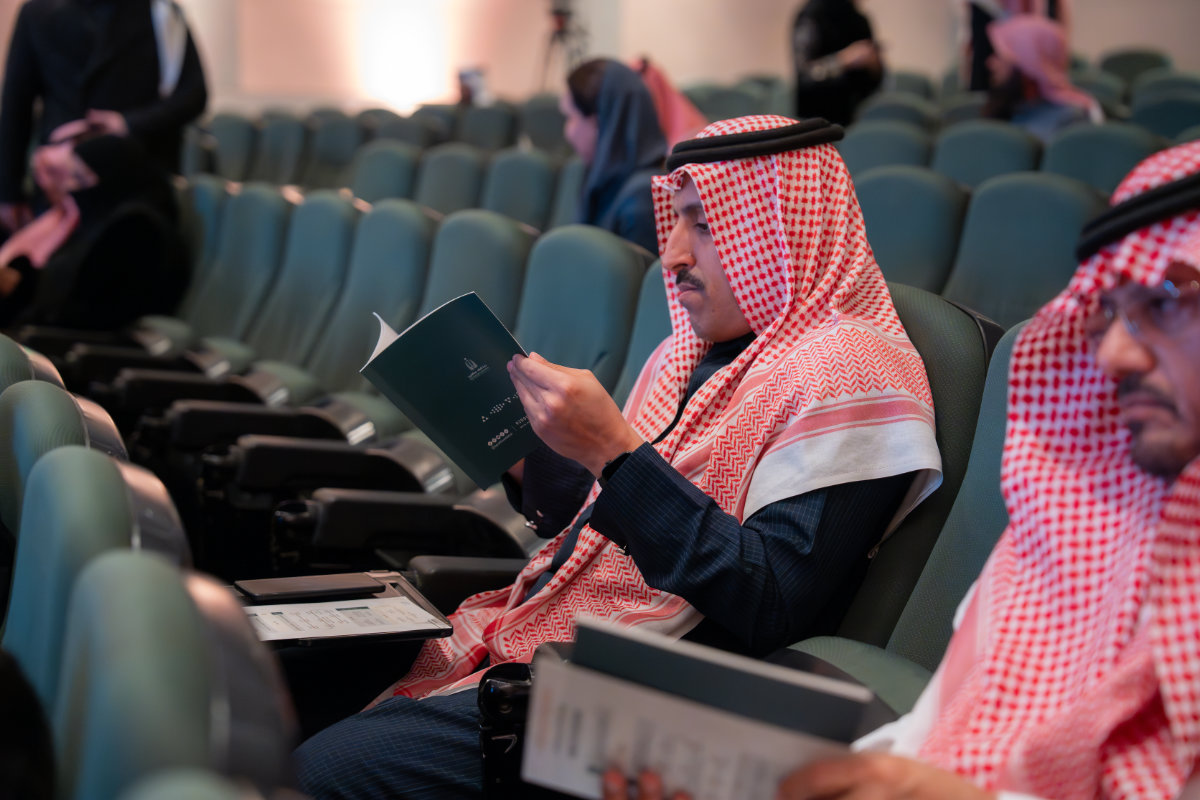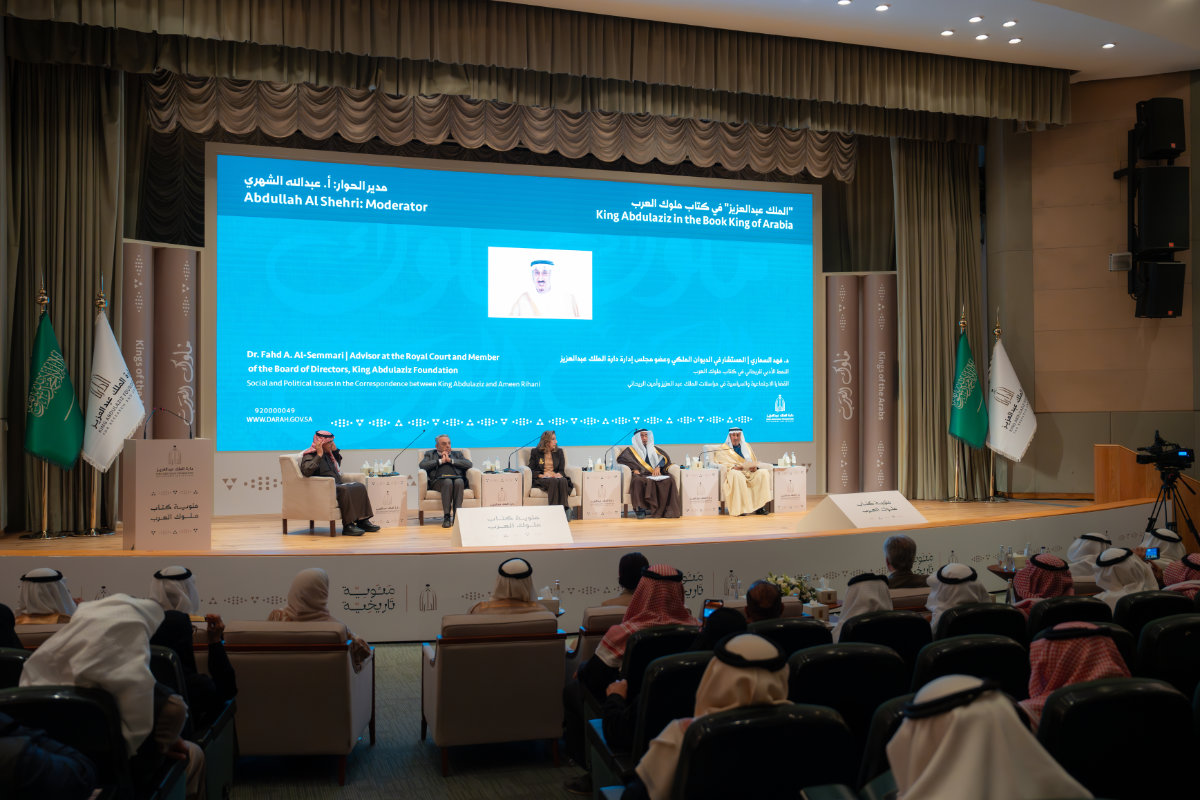New Delhi: Saudi Arabia’s pavilion is a main attraction at the New Delhi World Book Fair, with the Kingdom showcasing its culture and heritage as the festival’s guest of honor.
Inaugurated in 1972, the fair in the Indian capital is the country’s second oldest after the Kolkata Book Fair.
Hosted at the Pragati Maidan convention center, the event runs from Feb. 10-18. This year’s edition is attended by 2,000 exhibitors from all over the world.
The Saudi exhibition of books and manuscripts stands out at the venue and is visible from afar. Illuminated and fragrant, it features calligraphy, traditional musical instruments and handicrafts.
Rajat Nayanmar, an engineering student at Indraprastha University in Delhi, said he was drawn to the pavilion the moment he entered the hall and saw it standing out among other exhibitors.
“The moment I stepped in the pavilion you get a hint of the oudh ... you feel like you are in a different place,” he told Arab News.
“You feel like you are in some place that is representing something important, something cultural ... it is very different from the other stalls.”
It was Nayanmar’s first time interacting with Saudis and their culture.
“It’s really good — it gives you a first-person perspective of what Saudi Arabia really is,” he said.
Nayanmar’s colleague, Gyatri Katoch, also an Indraprastha University student, enjoyed the experience, too.
“It’s a new introduction to some different culture,” she said. “I interacted with the people there. It was really nice and sweet.”
Shreyas Upgade, a Delhi-based professional, told Arab News that the book fair finally gave him the opportunity to talk to Saudis directly instead of hearing about the Kingdom from other people.
“That is pretty important to me ... it’s not somebody else telling me their story. I am getting to interact with the people, so that makes a lot of difference,” he said.
“It will bring them closer to India.”
The meeting of people and establishing real bonds was one of the main aims of Saudi participation in the Indian fair, especially as the nations have become increasingly close in the past few years.
“I am very happy that the Kingdom of Saudi Arabia is the guest country in this book fair and is participating in a big way,” said Dr. Badr Al-Jabr, professor of Arabic language at Imam Mohammad Ibn Saud Islamic University in Riyadh, who is part of the Kingdom’s delegation and has interacted with visitors.
“Cultural exchanges deepen people-to-people relations, and such programs, of course, play a significant role in cementing relations.”
They are also timely as bilateral ties have steadily gained prominence since Crown Prince Mohammed bin Salman’s visit to New Delhi in 2019.
“Everyone is interested in knowing the new Saudi Arabia, the new vision of Saudi Arabia, the Vision 2030 of the Kingdom of Saudi Arabia,” Zikrur Rahman, founding director of the India Arab Cultural Center and India’s former ambassador to Palestine, told Arab News, as he also attended the book fair.
“A lot of people are visiting the place and this pavilion today has emerged as the cynosure of the eyes of Indians,” he said.
“Saudi Arabia has emerged as our strategic partner, and for the last around five years we have been strengthening, deep-rooting our relations in almost all fields — be it economic, be it commerce or commercial, or be it literary or in the media. This relationship is growing faster and faster.”










